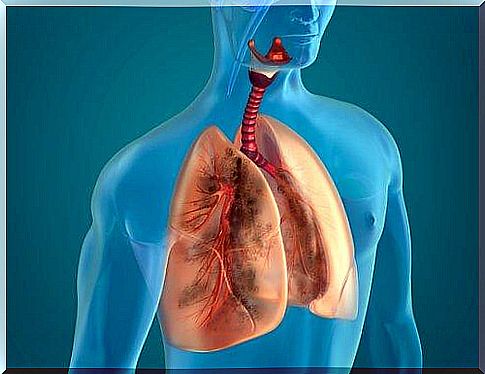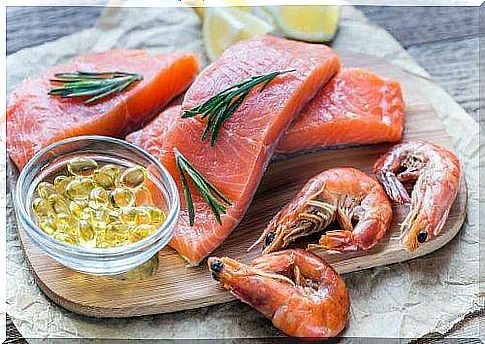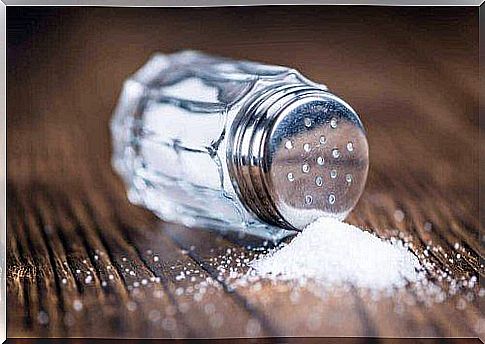Optimizing Your Lungs With These Foods

You can optimize your lungs with certain foods. Nevertheless, your diet does not require a strict change to cleanse your lungs. However, it is essential to improve the quality of the food you consume.
In general, you need balanced meals that contain as many different foods as possible and come from the various food groups.
You are what you eat. That’s why nutrition is the foundation of the health of the whole body – and that includes the respiratory system, of course. Nutrition is not only responsible for strengthening your immune system, but it also protects the tissues of your lungs and promotes their regeneration, thus helping to optimize your lungs.
Very few people pay attention to what they eat and continue to consume the easy junk meals you see on TV in the commercials. In addition, a sedentary lifestyle is the reason why there is an increase in the number of cases of lung diseases.
But how can we improve our diet? Today we will discuss some easy-to-implement measures to take good care of your body.
Foods That Help Optimize Your Lungs
Starting a diet to cleanse your lungs has great benefits if you already have lung disease or have trouble breathing. Keep in mind that it is not necessary to be sick to add quality foods to your diet.
In any case, we will make recommendations to alleviate the symptoms of respiratory infections and chronic lung disease (COPD).
Keep in mind that this is not a strict diet that should be implemented exactly as we describe it. It’s just a collection of basic eating habits that can complement a balanced diet, whether you have lung problems or not. Ready to take notes?
Omega 3 fatty acids

Omega 3 fatty acids have a leading role in our diet. Not only do they protect, but they also help cleanse our lungs. They are best known for their ability to improve cardiovascular health. In addition, these acids also have positive effects on both the lungs and the respiratory system.
This group of good fats lowers the risk of lung cancer and chronic diseases. In addition, they activate the secretion of anti-inflammatory substances that help to improve lung function in case of asthma, flu or cold.
The main sources of omega 3 fatty acids are:
- Oily fish (salmon, mackerel, sardies, tuna, etc.)
- Flax seed
- nuts
- Olive oil
With olive oil, keep in mind that many mixed varieties with a much lower quality are sold. Therefore, for cold preparations, choose an extra virgin in a dark bottle. Check by harvest date or best before date: the fresher the oil is, the better.
Also make sure that the country of origin, the region and preferably also the estate are mentioned. If there is only a general statement on the label as ‘product of’, this means that the oil is bottled in that country, but not necessarily that the olives were also grown and pressed there.
Glutamine and Arginine
Lung diseases reduce the quality of amino acids – especially glutamine and arginine. To avoid this, it is therefore better to increase their absorption through food.
As a preventative measure, include these nutrients in your diet as part of the recommended daily allowance of protein. However, if you already have a lung disease, the intake should be higher. The best sources for this are:
- Fish
- Eggs
- Dairy products
Carbohydrates

A total of 40 to 45% of the total calories in a diet to supply the lungs with everything they need should come from carbohydrates. You should know that it is important to choose complex carbohydrates.
It is highly recommended that you include abundant sources of antioxidants in your diet, as they are essential for reversing the negative effects of free radicals. Of course, this is great for your lungs, as they are the most vulnerable organs to the damage caused by toxins and oxidation.
In general, the best sources of carbohydrates and antioxidants are:
- legumes
- Dried fruits
- Extra virgin olive oil
- Vegetables
- Whole grains
- nuts
- Seeds
Moderate your sodium intake

Excessive consumption of sodium is related to several diseases that lead to inflammation. For that reason, salt intake should be minimized when dieting to protect your lungs. Instead, opt for herbs and spices, for example.
Both table salt and processed foods high in sodium can worsen the condition of the lungs because it can lead to fluid retention and poor circulation. This overloads the lungs, potentially affecting your ability to breathe.
Other recommendations
In addition to changes in your diet, it is good to develop a number of other healthy habits to ensure that your lungs are optimizing. The main goal is to be able to breathe freely and to properly expand the bronchi. So keep the following in mind:
- Eat five smaller meals a day (three main meals and two snacks).
- Limit or avoid consumption of processed, prepackaged, canned foods, including beverages, such as energy drinks.
- If you feel hungry between meals, eat nuts, yogurt, fruits and vegetables.
- Increase vitamin C intake by using citrus fruits.
- Finally, don’t forget to supplement your diet with plenty of water and regular exercise as it strengthens your airways and helps detoxify your lungs.








